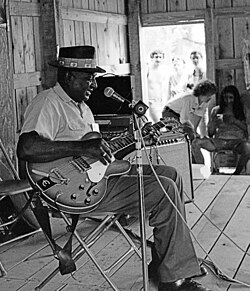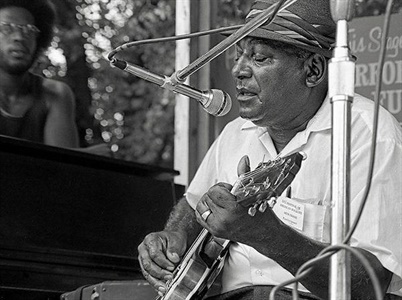5 Curiosities About Blues Musician Houston Stackhouse
Houston Stackhouse may not be as widely known as some of his contemporaries, but his contributions to the Delta blues scene were significant and lasting. A gifted guitarist, singer, and mentor, Stackhouse played a vital role in the musical development of several legendary bluesmen. Here are five fascinating curiosities about this influential yet underrated blues artist.
1. He Was a Key Mentor to Robert Nighthawk and Others
Houston Stackhouse played a crucial role in shaping the musical careers of other blues greats. One of his most notable protégés was slide guitarist Robert Nighthawk, who learned much of his technique and style from Stackhouse. He also influenced bluesmen like Little Milton and Jimmy Rogers, providing them with early guidance and musical inspiration.
2. He Preferred to Stay in the Shadows
Unlike many of his peers who sought fame or migrated north during the Great Migration, Stackhouse chose to stay in the South, mainly in Mississippi and Arkansas. He was more interested in playing music for his community than in seeking the spotlight. As a result, he never recorded an album during the peak years of his career, contributing to his relative obscurity despite his talent.
3. He Played on the Legendary King Biscuit Time Radio Show
Stackhouse was a regular performer on the influential King Biscuit Time radio show, broadcast from Helena, Arkansas. The show, which began in 1941, was one of the first to feature live blues performances and became a launching pad for many Delta blues musicians. His participation on the show helped spread his influence, even if his name wasn’t always front and center.
4. He Was a Musical Chameleon
Though rooted in the Delta blues tradition, Stackhouse was versatile in his playing. He could shift between different blues styles—country blues, Chicago blues, and electric blues—adapting his sound depending on who he played with. This versatility made him a favorite accompanist and session musician in local bands and radio performances.
5. His First Major Recording Came Late in Life
Stackhouse didn’t make his first significant recordings until the 1960s and 70s, well after many of his contemporaries had already built national reputations. Field researchers and folklorists, including David Evans, recognized his importance and recorded him for posterity. These late recordings, although limited, provide invaluable insight into the deep roots of the Delta blues.
Conclusion
Houston Stackhouse may not be a household name, but his influence is etched into the history of blues music. Through his mentorship, live performances, and commitment to the local music scene, Stackhouse helped shape the sound and spirit of the Delta blues. His story is a reminder that not all musical legends seek fame—some simply live the music and leave a quiet, powerful legacy behind.


Comments are closed